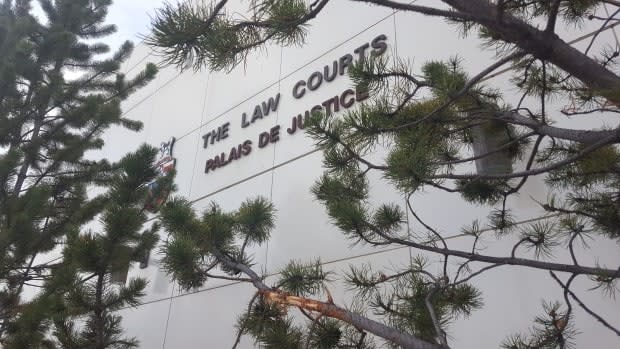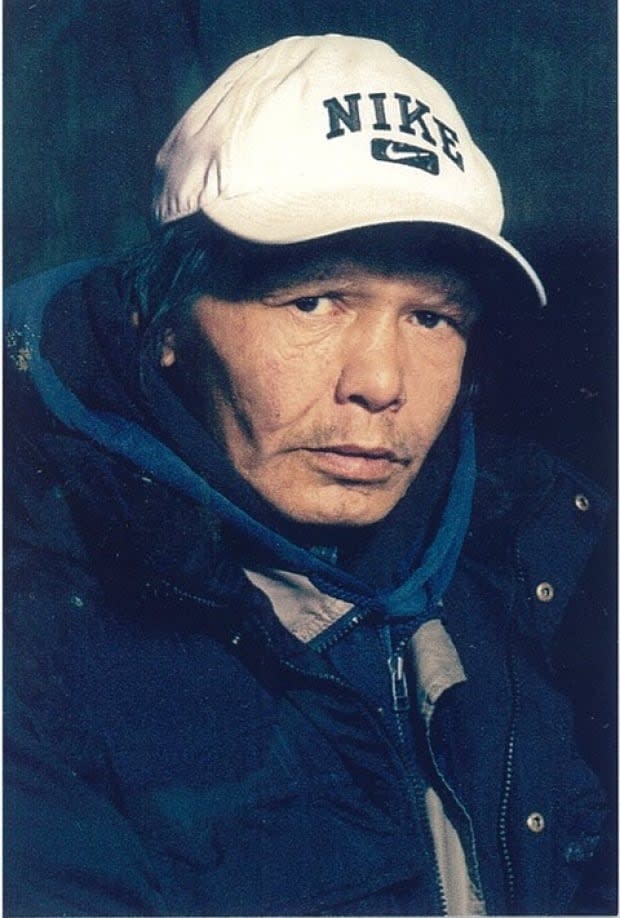Whitehorse woman to serve 2.5 years more for killing Greg Dawson

A Whitehorse woman has been sentenced to five years in prison for killing her common-law partner, Greg Dawson, in their Riverdale apartment in 2017.
However, with credit for time already served, Connie Thorn is facing only two years and six months more behind bars.
Yukon Supreme Court Justice Edith Campbell handed down Thorn's sentence before a packed courtroom in Whitehorse on Thursday, about a month after the Crown and defence gave their sentencing submissions.
Thorn, 52, was originally arrested and charged with second-degree murder in relation to Dawson's death but pleaded guilty to the lesser charge of manslaughter earlier this year.
Dawson's body was found in a basement apartment he shared with Thorn on April 6, 2017.
Sentence not a reflection of Dawson's value, judge says
According to an agreed statement of facts filed earlier in the case, Thorn beat Dawson to death but was too intoxicated at the time to remember what happened. She initially told investigators that she'd come home and found Dawson already dead, but in 2019 she was arrested in relation to his death and eventually accepted responsibility.
Dawson was a 45-year-old Ta'an Kwäch'än citizen with close ties to Kwanlin Dün First Nation. His death took a heavy emotional and psychological toll on both communities, the court heard during sentencing submissions, particularly because he was a well-liked but vulnerable person.
Campbell, who spent more than a hour reading her decision, acknowledged the heavy impact Dawson's death had on his friends, family and community, noting that Thorn's sentence should not be seen as reflective of the value of Dawson's life.

Both the Crown and defence, as well as Thorn herself, had agreed that she should be sent to a federal institution where she could access more programming than she could in Whitehorse. The Crown had asked for five years, while the defence wanted four years and four months; Campbell ultimately agreed with the longer sentence, noting that while Thorn had good rehabilitative prospects — she's expressed a desire to better herself and change her life, and has participated in programming while in jail — there were also a number of aggravating factors in the case.
Those included Thorn's criminal record, which includes several convictions for other violent offences, the fact that Dawson was Thorn's common-law partner, that the attack on Dawson was unprovoked and consisted of multiple blows, and that Thorn didn't try to seek help afterwards but instead attempted to cover up her role.
Tempering that though, Campbell said, were Thorn's guilty plea, her acceptance of responsibility, her expressions of remorse for her actions and several Gladue factors, including the fact that Thorn is an intergenerational survivor of residential schools.
Campbell recommended that, in accordance with Thorn's wishes, she be sent to an Indigenous healing lodge for the remainder of her sentence, where she'd be given the opportunity to reconnect with her Métis heritage.
"I think it's now up to you to live up to your commitment to yourself and to others," Campbell said to Thorn shortly before closing the court for the day.
Thorn will also be subject to a lifelong firearms and weapons ban, and is also forbidden from contacting a number of Dawson's friends and family while incarcerated.
Crown 'grateful' for community members who came forward
Members of Dawson's family didn't want to speak to the CBC after the decision, but some could be heard saying as they left the courthouse that they didn't want Thorn to return to Yukon.
Crown attorney Noel Sinclair told the CBC afterwards that he wanted to thank community members who had come forward to the RCMP with information, which in turn made it possible for the Crown to build the case that eventually led to Thorn's guilty plea.
"From the prosecution service, I'm grateful to all of those people in the community that had the courage to speak up and to provide important evidence to the police even if they didn't know exactly how it fit in," he said.

 Yahoo Movies
Yahoo Movies 